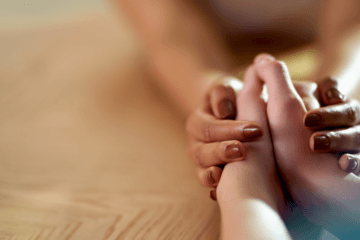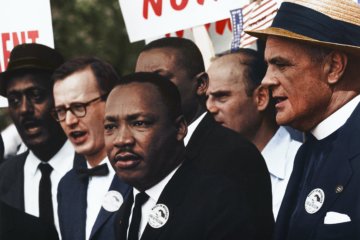When you think about loving someone, how do you define the concept?
Do you think about the blush of romance…the thrill of a new adventure? A diversion from everyday life?
Or, do you think of love as an investment in dedication, perseverance, and fidelity…?
Living a life of significance requires that you submit to being needed, and needing your loved ones.
As a life coach, I know it isn’t easy. And it shouldn’t be mistaken for codependence. What I’m talking about is interdependence…and it’s the most enriching, empowering, and loving link you can have to another person.
Understanding the difference between love and romance
There is romance, and there is love.
What’s the difference?
If I love you because you are beautiful, that’s romance. If you are beautiful because I love you, that’s real love— a value-creating love that inspires us to become everything we were born to be.
However, we can be liked and feel loved…but unless we know we are truly needed, we will never fulfill the entire measure of our existence and enjoy the realm of significance.
Mere romance, which successful people cultivate, is an emotional attachment built around ego and selfishness, a virtual obsession to take more than you give.
Obviously, romance is an enjoyable thing we all seek, but unaccompanied by love, it can quickly become destructive.
In fact, romance is often little more than a politically correct label for lust, an ugly, conditional relationship rooted in excessive self-importance and boastful arrogance.
Significant individuals learn to rise above romantic selfishness to achieve love…with all its intensity, power, turbulence, frustration, yearning, attraction, restraint, forbidding, peace, beauty, and sublimity.
True love is unselfish and involves giving more than you get.
It represents unconditional cherishing and concern for another, a fulfillment of the other’s needs that also brings about the attendant and sublime pleasure of being needed.
Our chances of living the Twelve Laws of Significance rise to 100 percent probability when we have someone by our side who truly loves us, who is easing the burden, and whom we love in turn.
Being needed is the highest form of love
I have contrasted the highest law of love with the preparatory principle of romantic selfishness, but that does not suffice to convey what love truly is.
In a philosophical context, love is a virtue representing all of human kindness, compassion, and affection.
In a religious context, love is a virtue and the basis for all being – God is love. The word “love” can refer to a variety of different feelings, states, and attitudes…
- I loved that meal – generic pleasure
- I love my wife – intense devotion
- I love my children – emotional closeness
- I love my dog – platonic love
All these versions of love are valid. I love a well-cooked meal, I’m utterly devoted to my wife, I would give my life for my children, and I’ve been the recipient of unconditional love from my Maltese, Porsha – who is happy to see me regardless of how late I come home, how much weight I’ve gained, my job status.
When you commit to yielding your notion of romantic love to the more profound concept of needing, and being needed, you are reaching the pinnacle of significance.
Both states can be uncomfortable: needing someone else and being needed by someone. But it’s in that discomfort that you find true fulfillment.
Four Suggested Action Steps to Loving and Being Needed
1. Make a love list
List the ten people you love most, explaining in a sentence or two why you love them.
Evaluate the difference in the kind of love and level of intensity with which you love each of them – is your love based on romance or true love?
Do you love them because of what they give you, or do you love them generously and selflessly, pouring yourself out for them?
2. Make an action list
List one need of each of the people you listed in action step one. Plan a concrete action you can take to help meet each of those needs.
3. Make a gratitude list
List the five actions that others do for you that make you feel most loved. Thank those who do those actions for you and let them know that they are needed.
4. Make a priority list
List the five places (destinations) and five things (car, boat, vacation home, sport, hobby, etc.) that you love most.
Compare the amount of time, money, and energy you spend on these things to the time, money, and energy you spend on the people you listed earlier. If you are putting more into your own selfish pursuits than into your relationships, consider how to change your priorities.
Loving is giving and taking with a brave heart
If you can harness the power of genuine love, there are no limits to what you can achieve.
Take time to examine the relationships in your life and decide if they’re based on romance or deep and abiding love.
It won’t just apply to your personal relationships. Examine your dedication to work. Are you committed to your employer because it’s romantic, exciting, fleeting? Or, are you invested in the enterprise…?
Would you like to explore what truly loving is in all its forms and harness its power? Contact me, and we’ll explore the potential together.
Enjoyed this article? Here are three more to help you:
What Is A Keynote Speaker?
Time Management Is About Harmony, Not Multitasking
Empower Yourself To Stretch And Discover Real Growth


